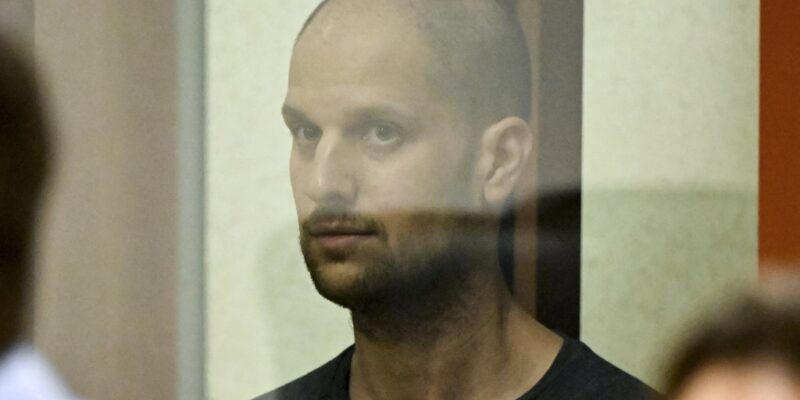Russia: EFJ demands the release of political prisoner Evan Gershkovich

The European Federation of Journalists (EFJ) and its Russian affiliate JMWU firmly condemn the decision of Russia’s Sverdlovsk Oblast court to sentence US reporter Evan Gershkovich to 16 years in a high-security prison on charges of alleged espionage. Russian authorities did not produce evidence to support the accusations against him. The EFJ considers this trial behind closed doors and this sentence to be an act of pure political repression. We demand Evan Gershkovich’s release, as well as that of the 139 journalists imprisoned in Europe.
Gershkovich has reported from Russia for many years and has repeatedly received official accreditation from the Russian Foreign Ministry. Since 29 March 2023, Gershkovich has spent most of his time in Moscow’s Lefortovo prison, where detainees are held in isolation, in individual prison cells.
On 26 June, Gershkovich’s trial began at the Sverdlovsk Oblast court, which is located in Yekaterinburg, the city where the journalist was initially detained in March 2023, when he was investigating recruitment efforts by the former private military group Wagner.
Following an initial hearing on 26 June, one more was held on 18 July. On the morning after this second hearing, prosecutors requested a sentence of 18 years in prison. The judges sentenced the journalist to 16 years in prison. It is the first conviction of a US journalist in Russia on spying charges since the end of the Cold War.
“Our colleague has literally been taken hostage by the Russian government in the context of a diplomatic tug of war with the United States”, said EFJ President Maja Sever. “He has nothing to reproach himself for and his conviction is in fact a strategy of diplomatic intimidation. The Kremlin is using our colleague as a bargaining chip. We demand his release, along with that of the 139 other journalists imprisoned in Russia, occupied Ukraine, Azerbaijan, Turkey and Poland, just for doing their job”.
“The consequence of such a trial is that the few international media outlets that continue to work in Russia have implemented strict security protocols for their correspondents, preventing them from traveling around the country and conducting interviews”, added Andrei Jvirblis, International Secretary of the Journalists’ and Media Workers’ Union (JMWU).











